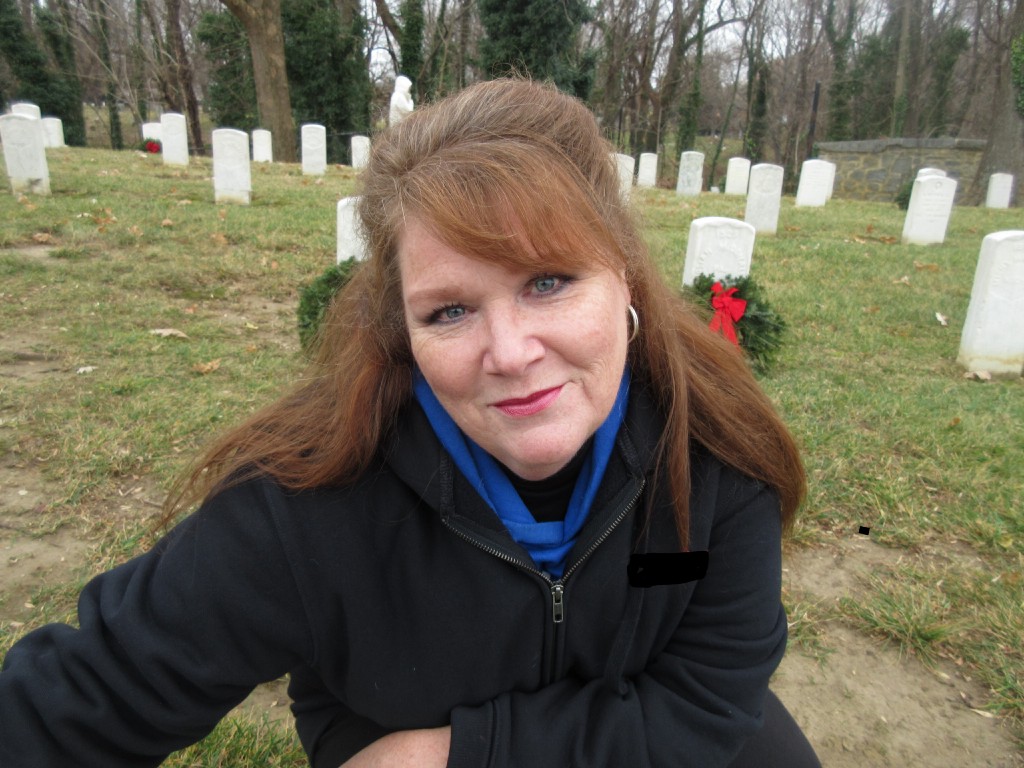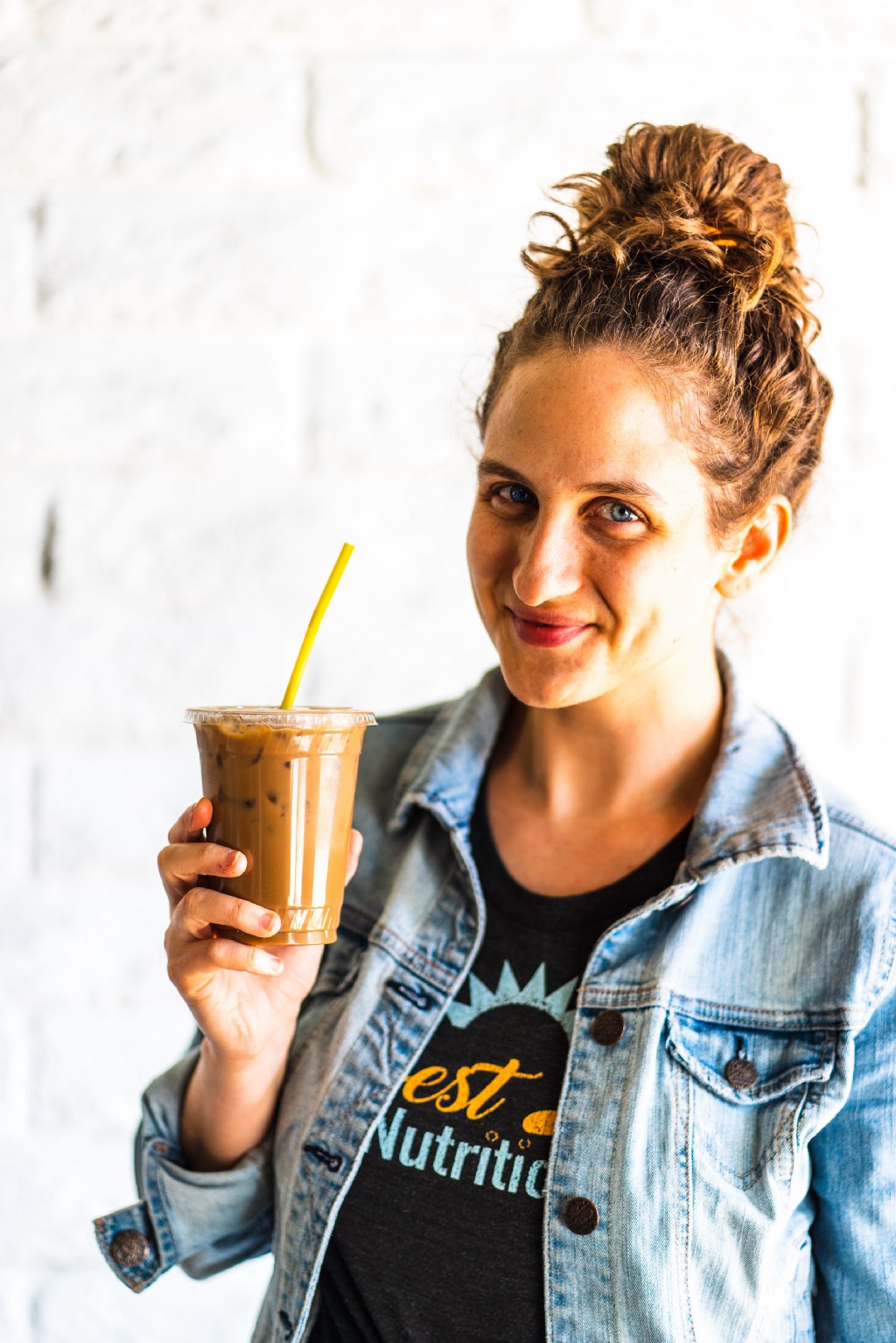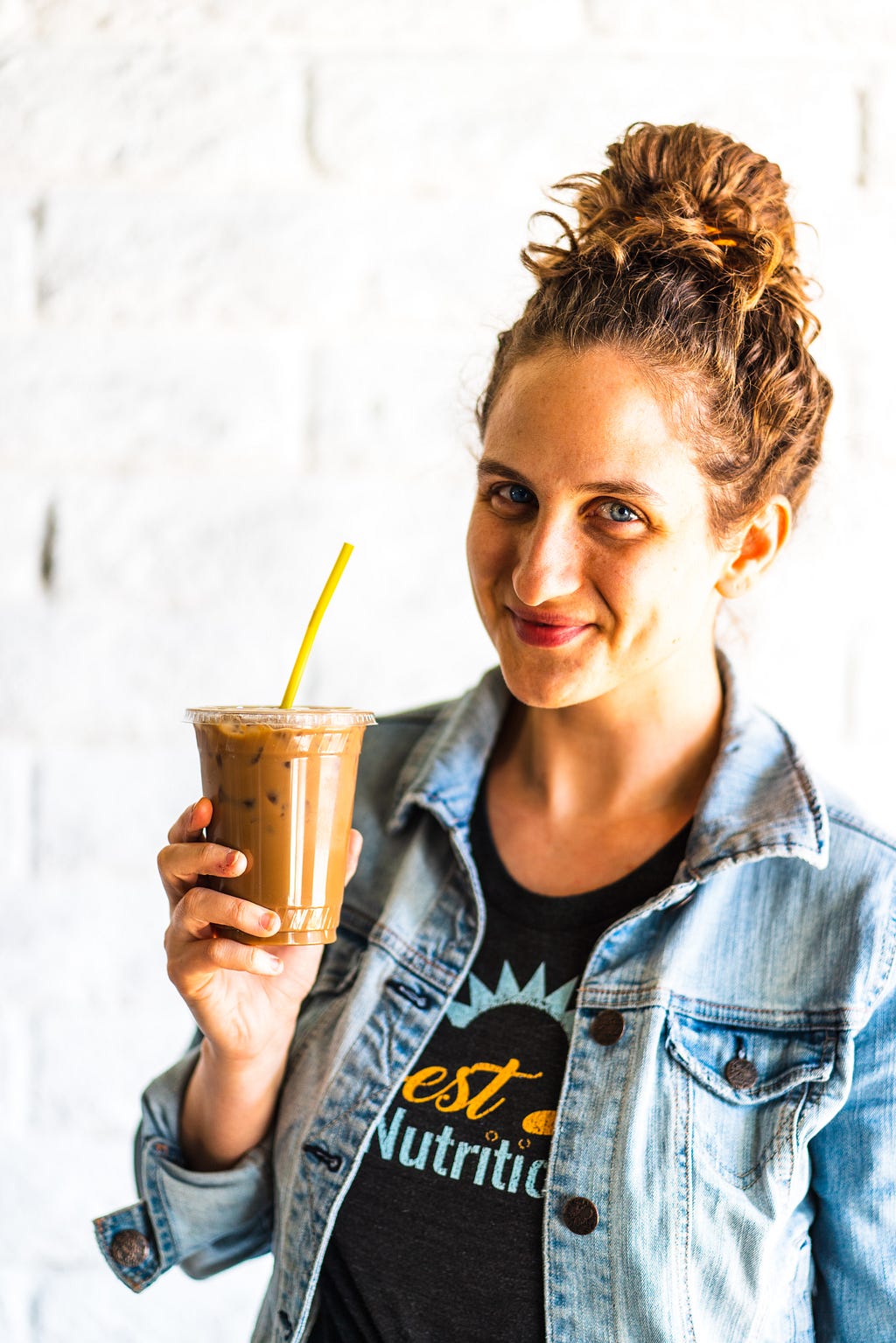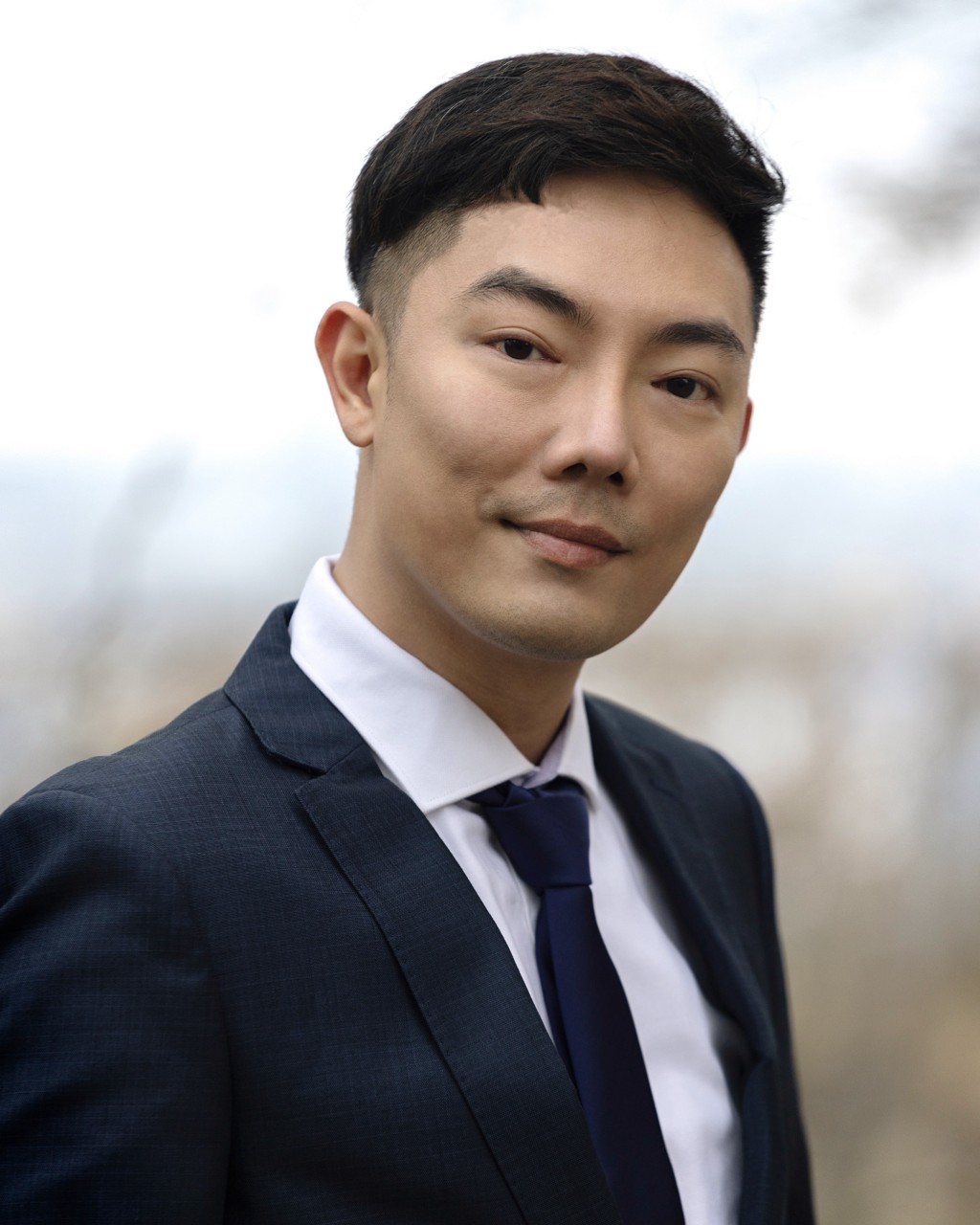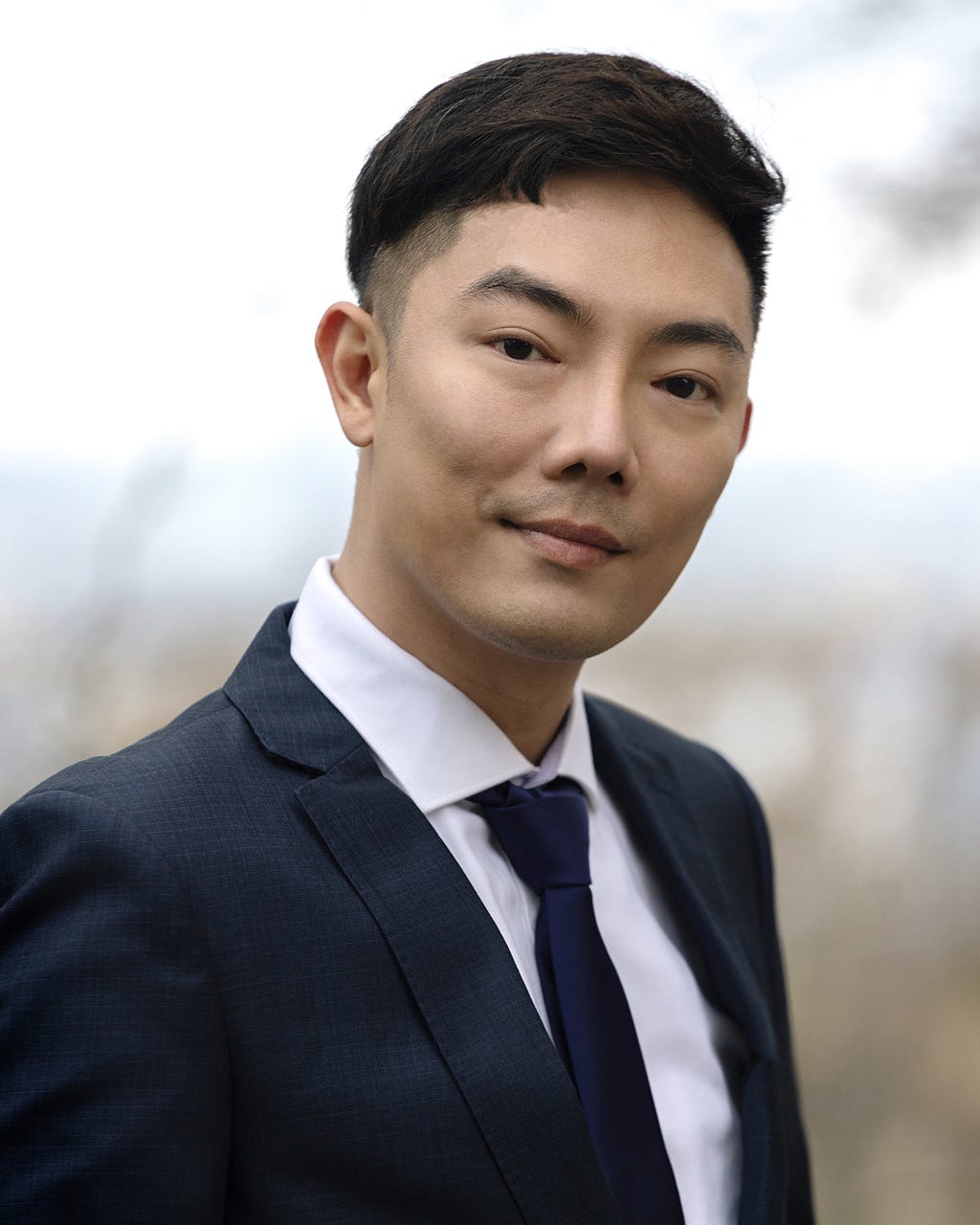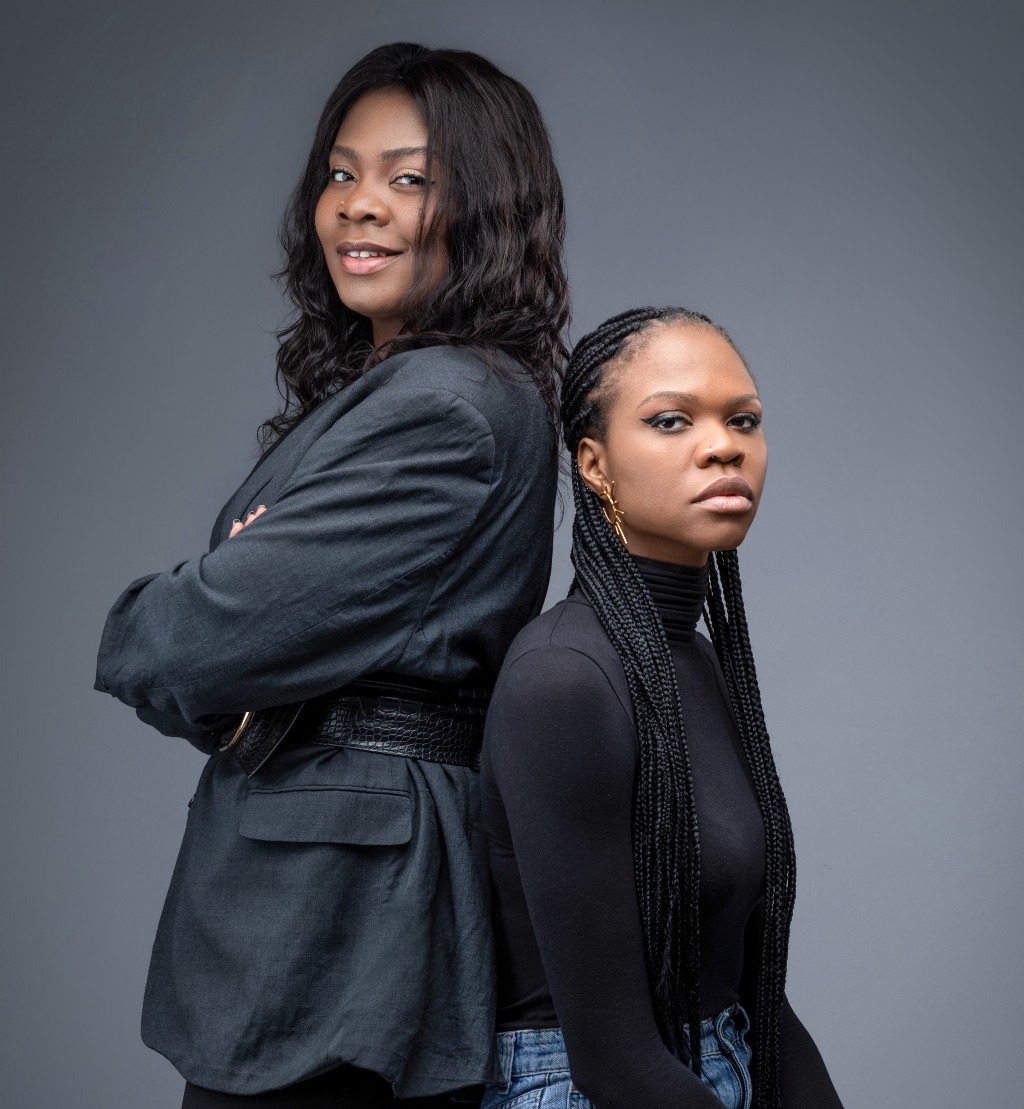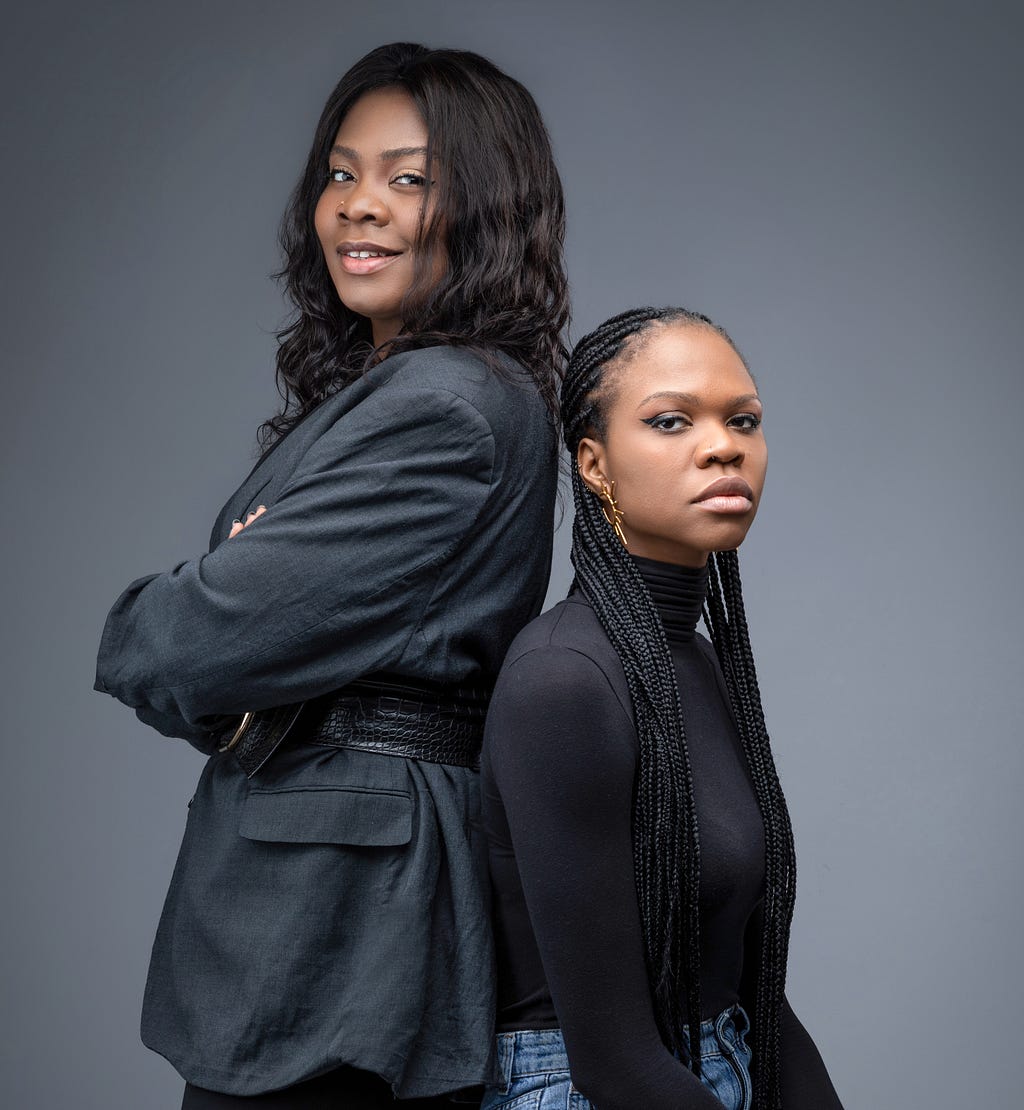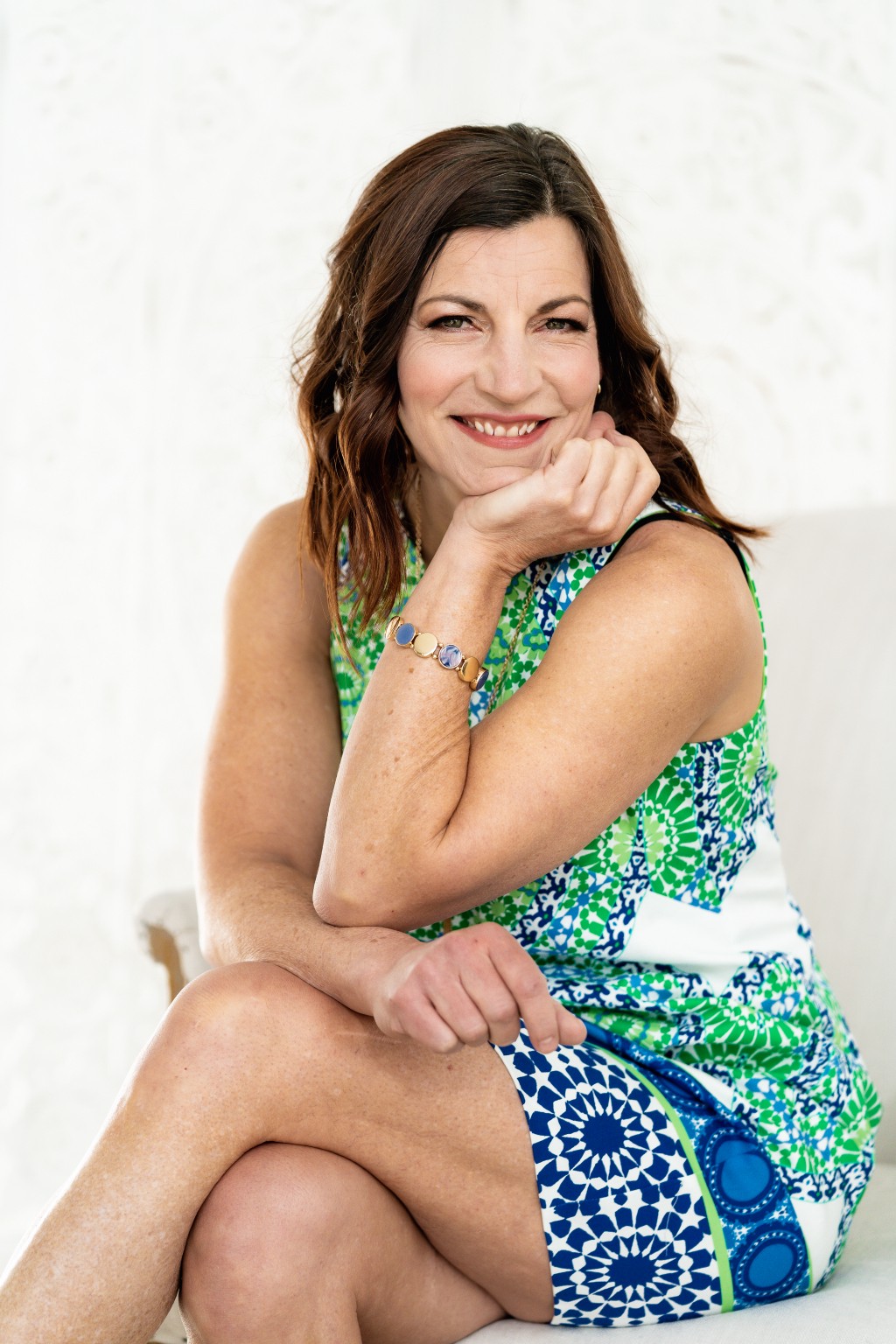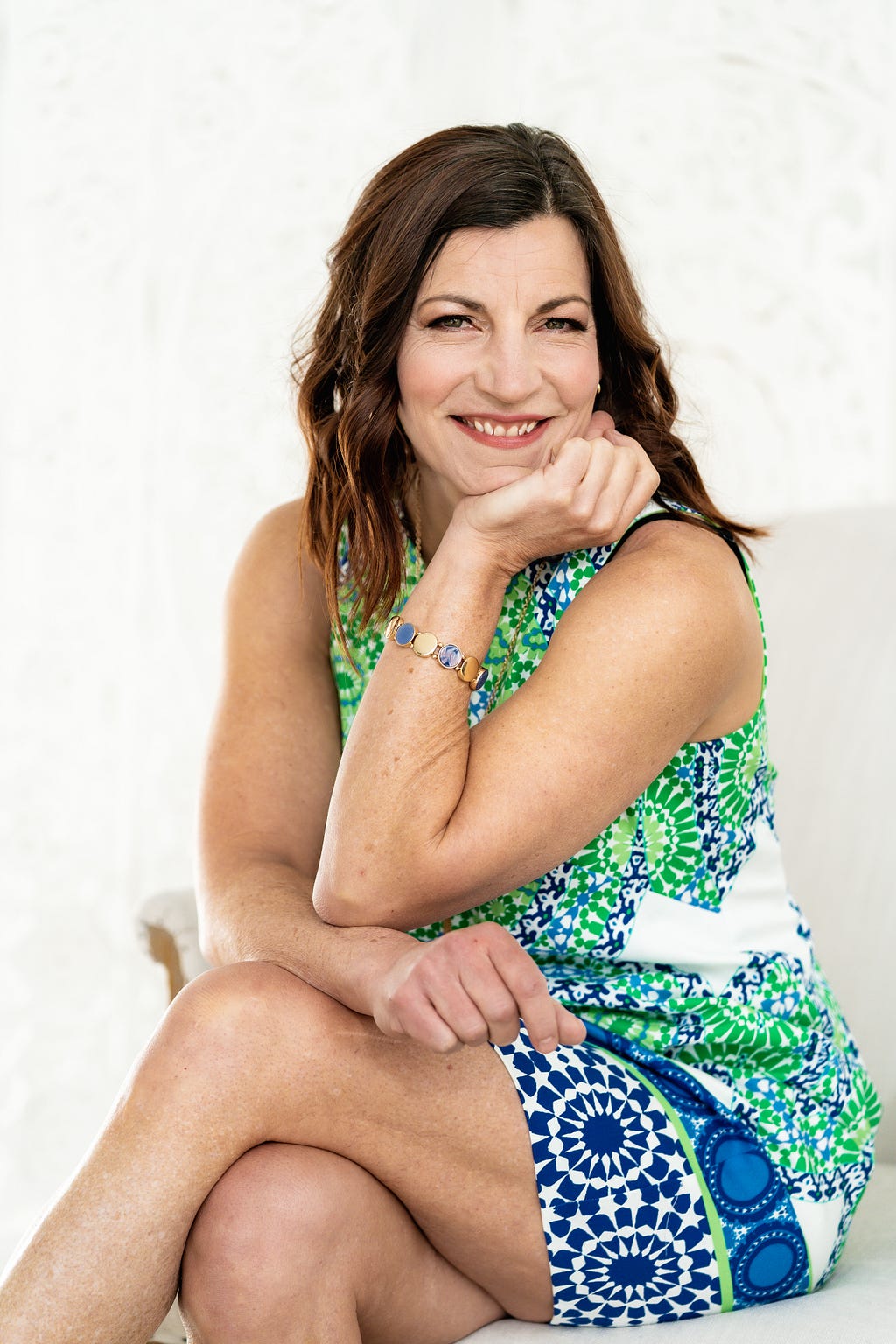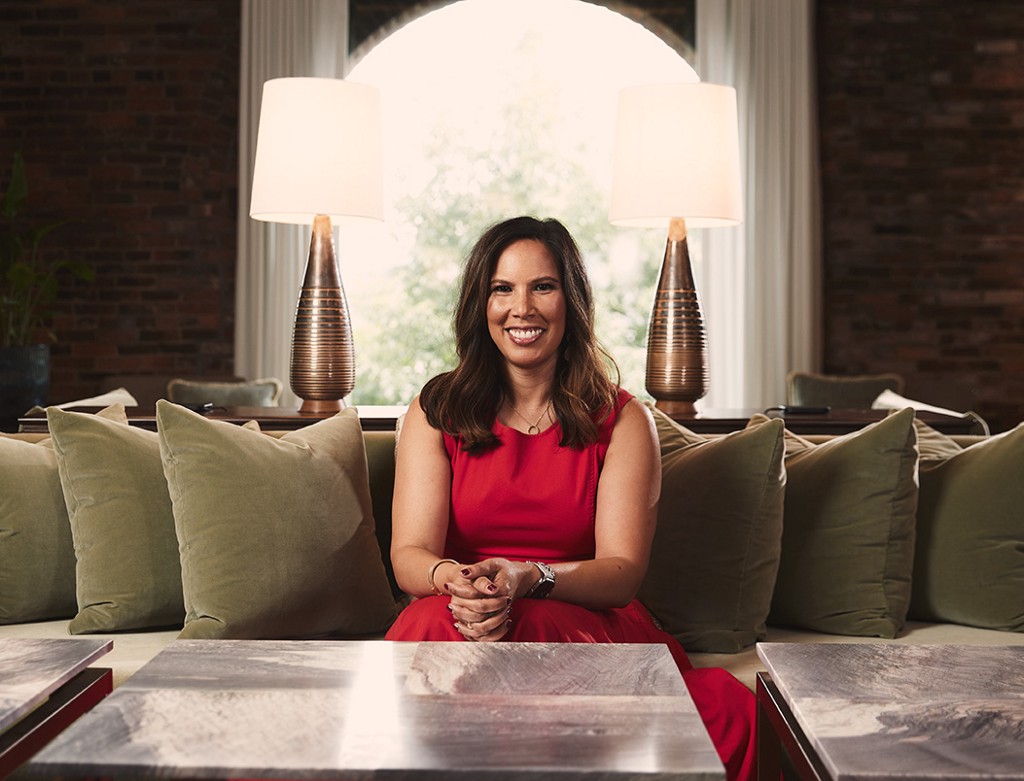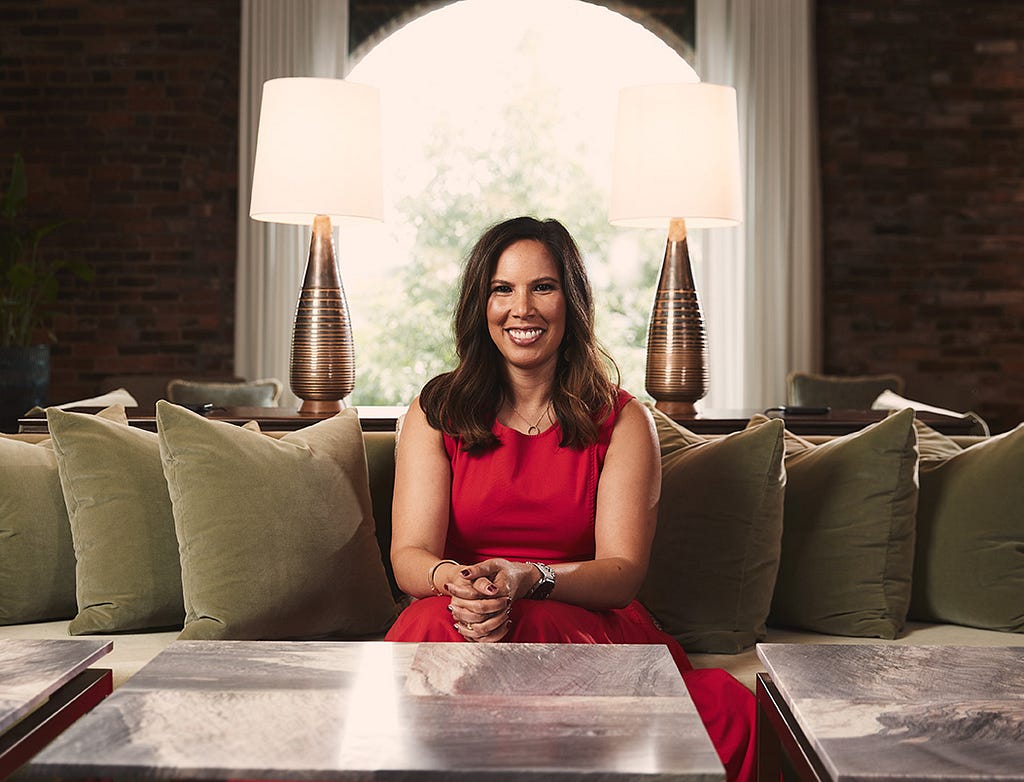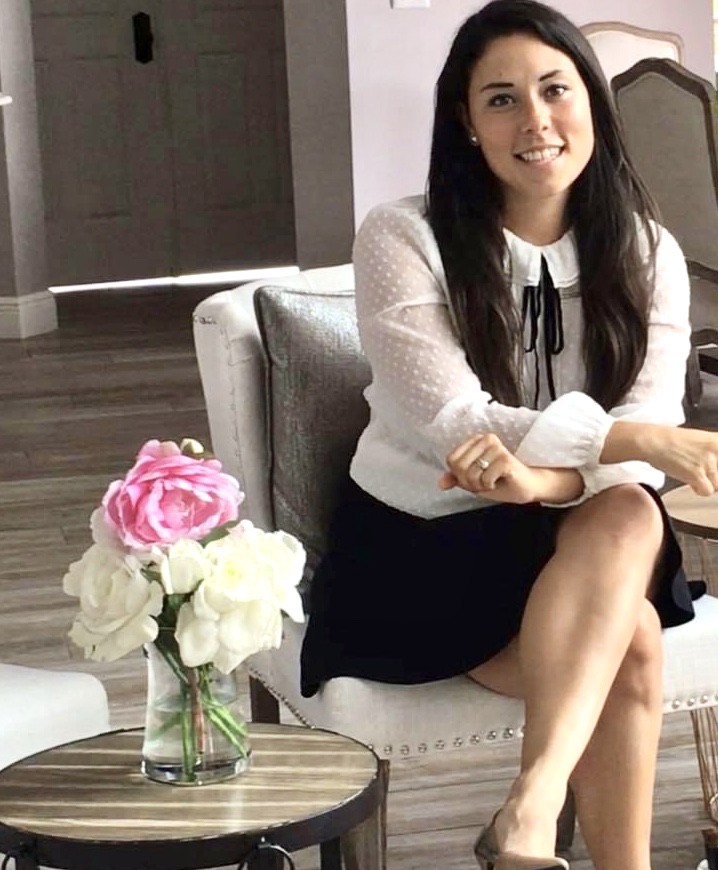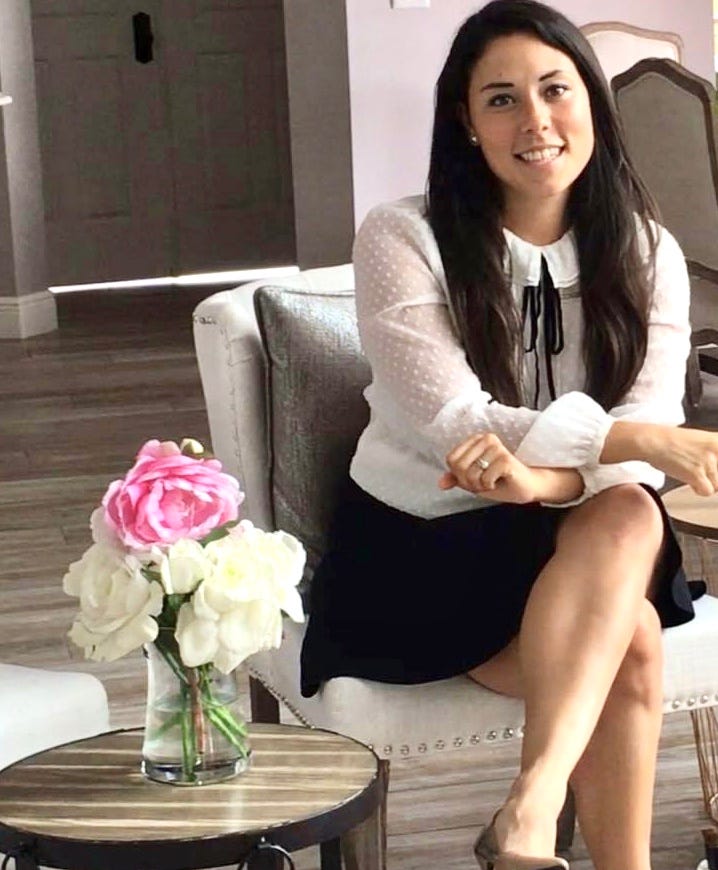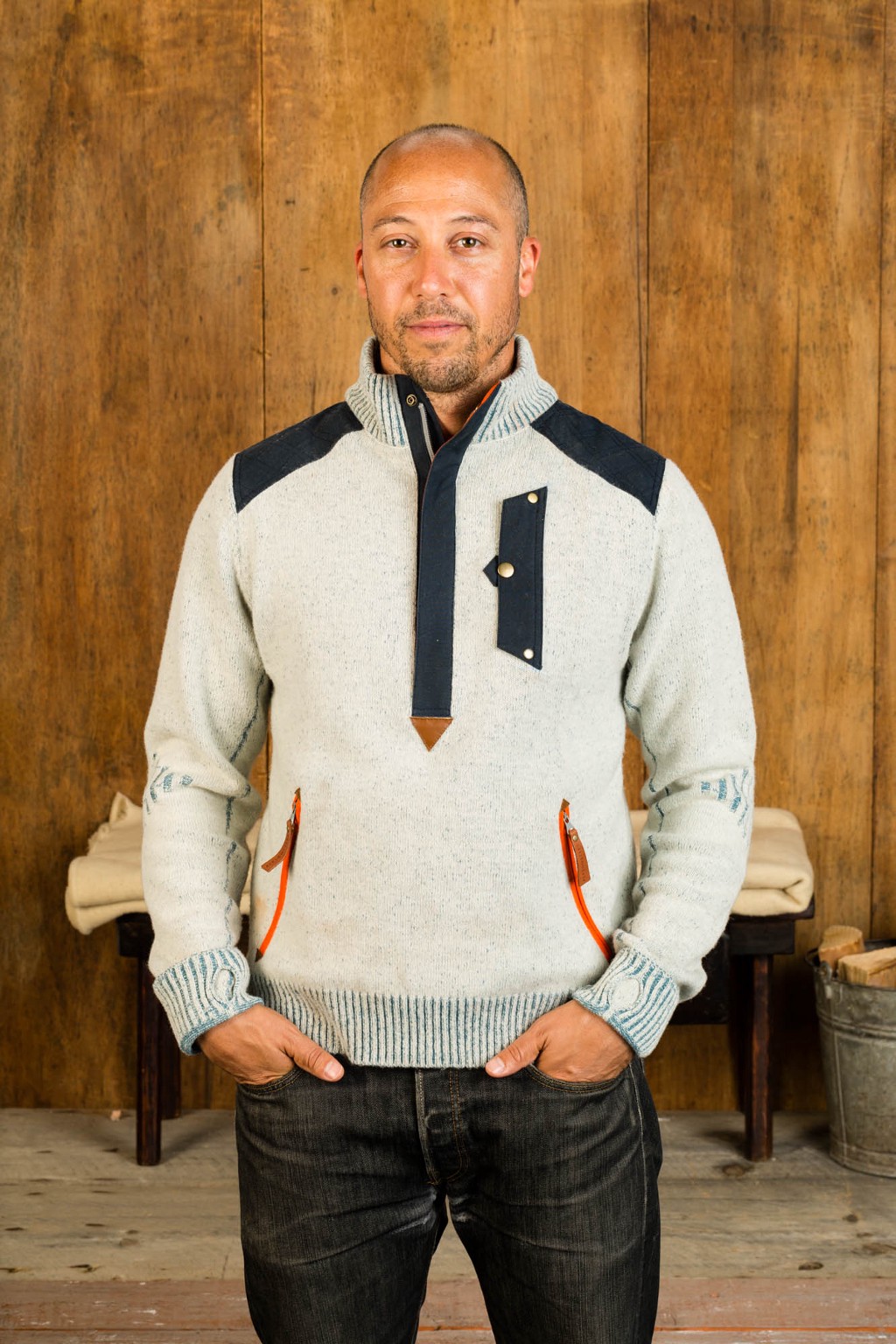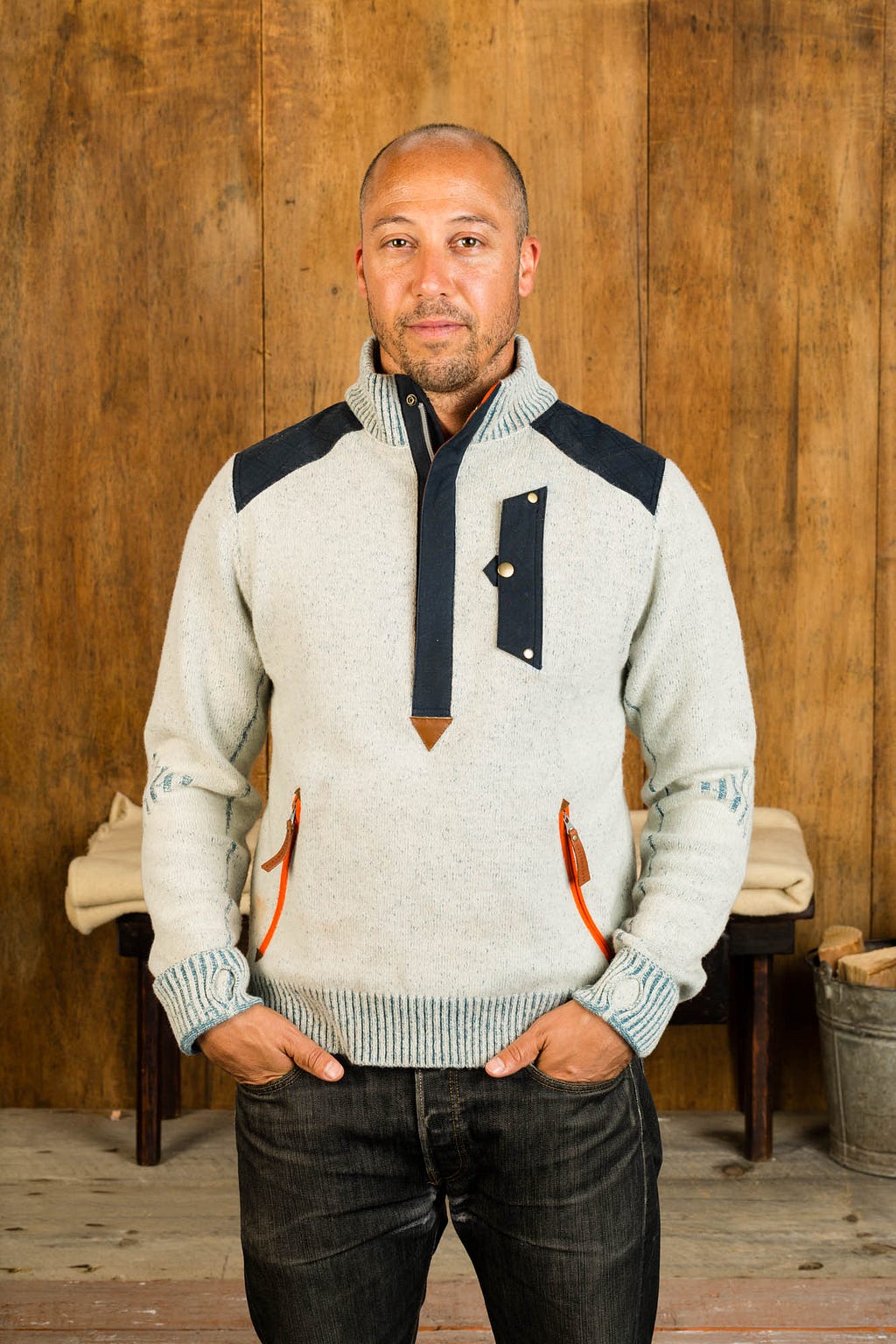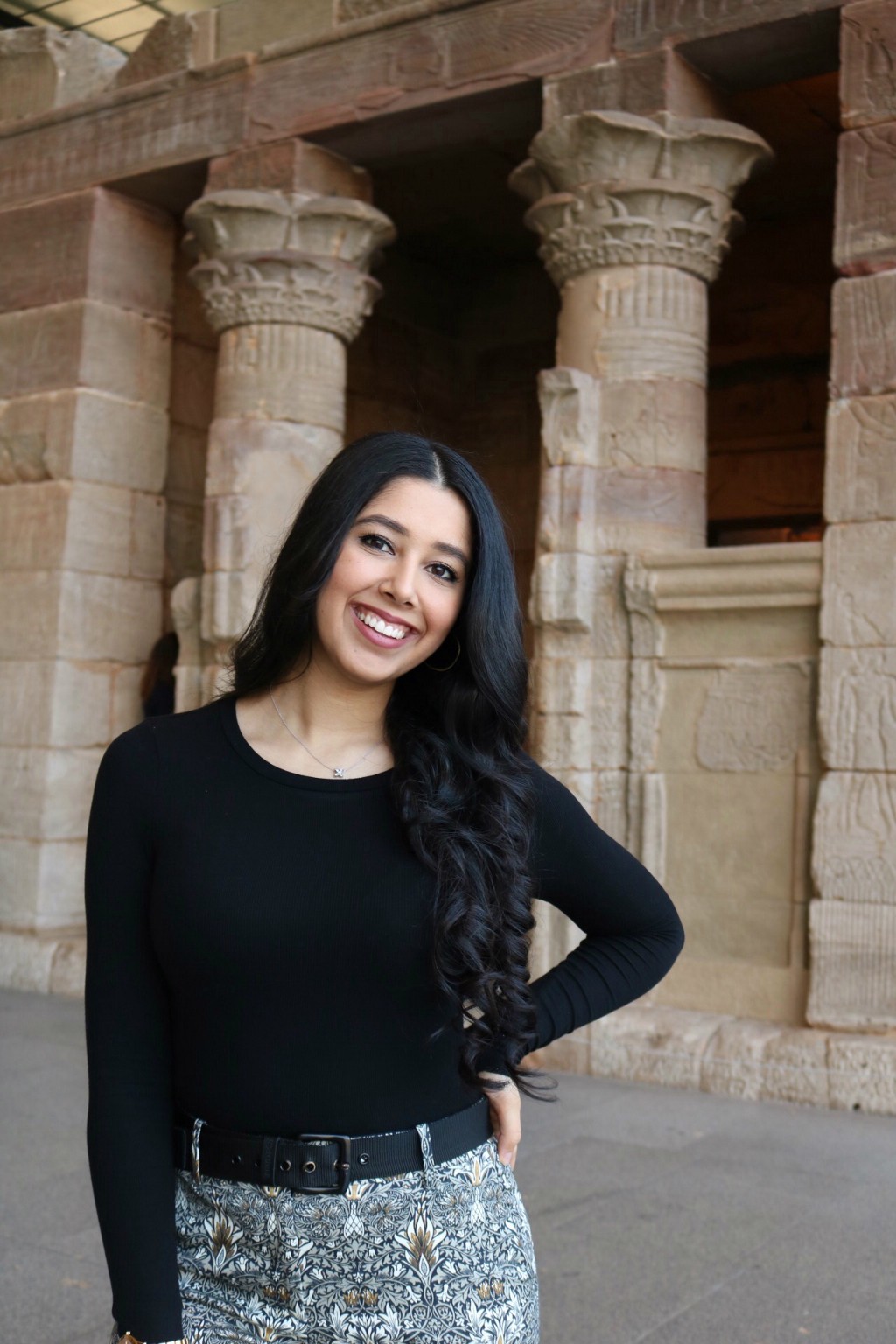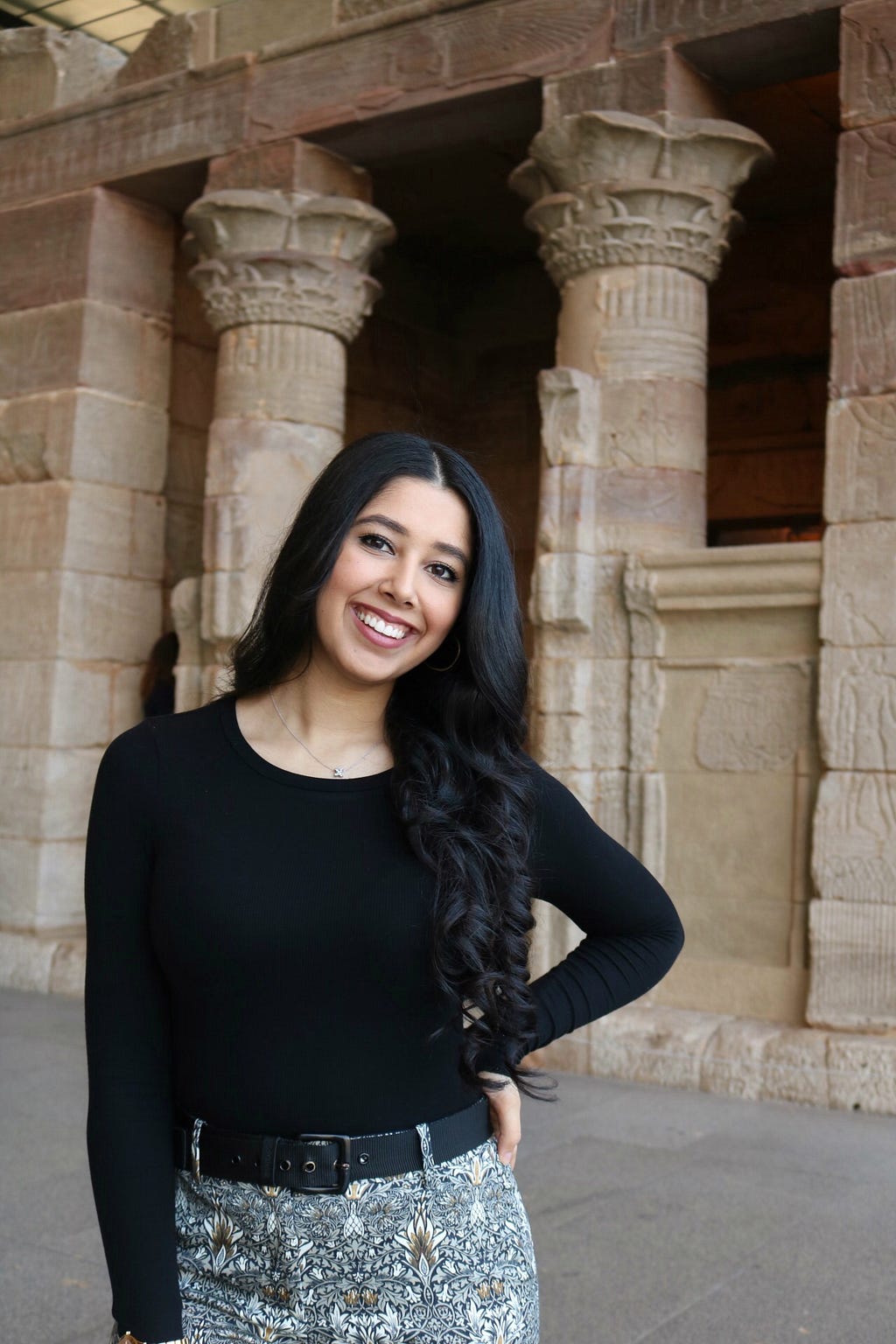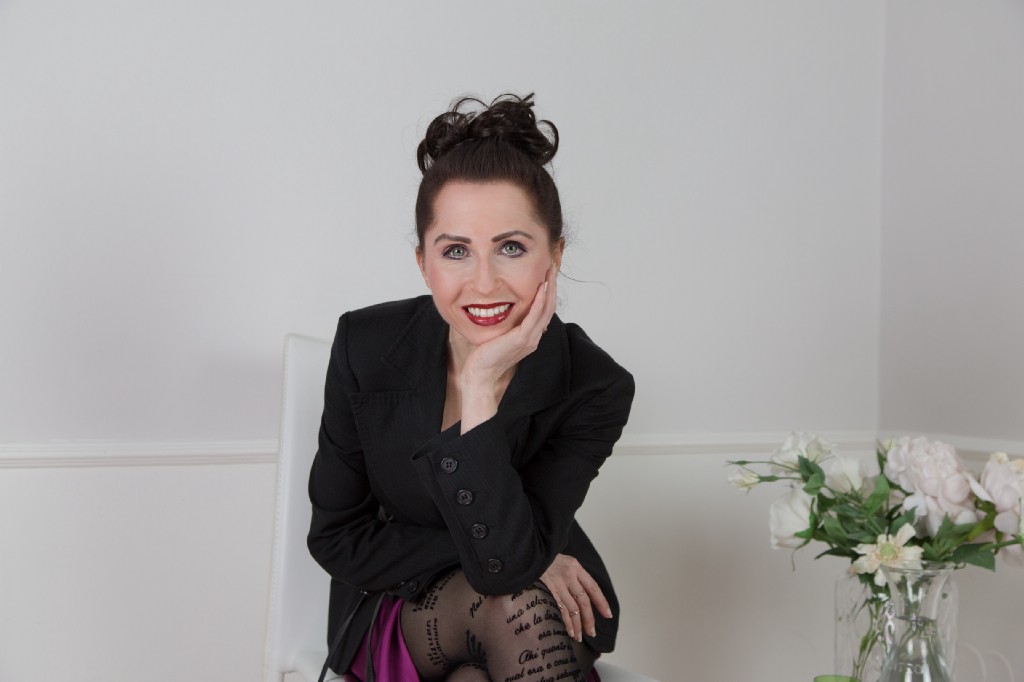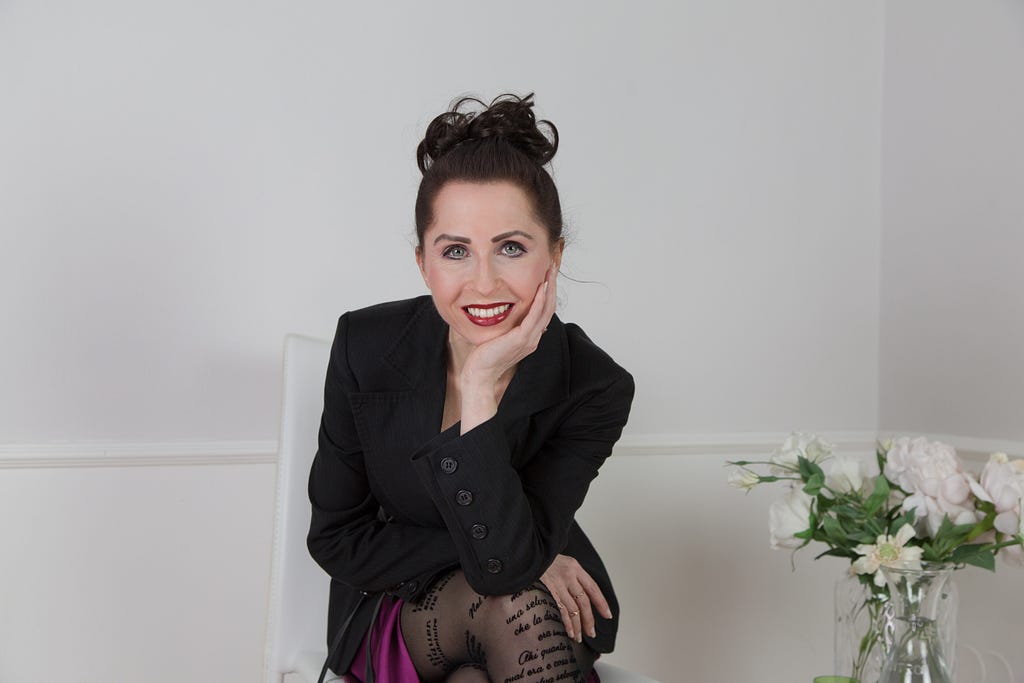Female Disruptors: Felicia Barlow Clar of Epilogue Tributes On The Three Things You Need To Shake Up Your Industry
An Interview With Candice Georgiadis
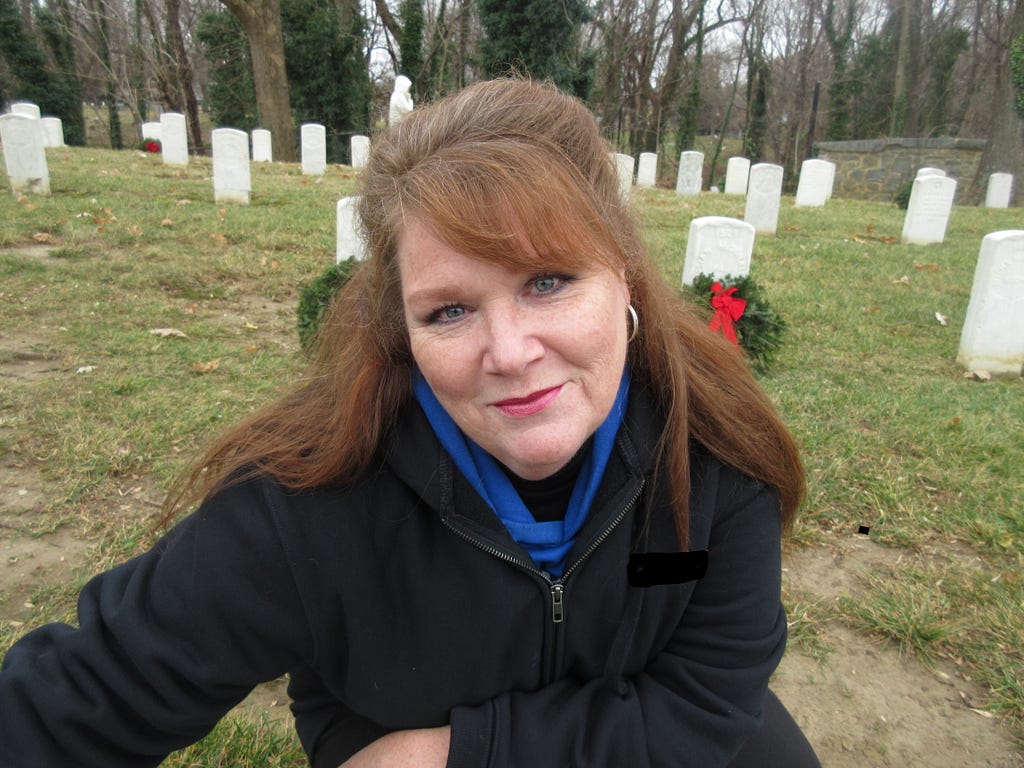
“You can live in a beautiful state or a suffering state. The decision is yours.” Taught to me by a mindset coach. It’s a deep spiritual principle, but in its simplicity, it makes life so much easier. Everything is meant to be and if we are suffering, we are the ones who put meaning into it. Take out the interpretation/meaning and everything simply IS.
As a part of our series about women who are shaking things up in their industry, I had the pleasure of interviewing Felicia Barlow Clar.
Felicia Barlow Clar is a sacred life celebrant, author, host of the podcast “Funeral Disruptors™, and an award-winning event and video producer. She created Epilogue Tributes to offer support in helping the bereaved mourn in an intentional way, shifting grief to gratitude and beginning the healing process. Felicia creates personalized memorial experiences, consults on end-of-life planning and options few know exist, and is changing the conversation around mortality to modernize the funeral industry.
Thank you so much for doing this with us! Before we dig in, our readers would like to get to know you a bit more. Can you tell us a bit about your “backstory”? What led you to this particular career path?
I grew up around the world of events, hospitality, and advocacy. I was raised by my mother and stepfather; he was the Executive Manager of the International Club of Washington, DC from its inception to its closing. It was a very prestigious, private club with historical significance. They were responsible for creating much of the high powered social scene we see in DC today.
The International Club hosted everything from ambassador-led embassy nights, to the first big Hollywood movie premiere in DC, to an evening with Prince Charles. Every sitting President from Kennedy to Reagan accepted the role as Honorary Chairman of the Board. Naturally this prestige required a high level of work ethic and discretion, which I saw in my stepfather every day and strive to emulate. I had a summer job there, which is where I first learned about event planning.
I knew I wanted to do something creative and graduated from New York City’s Fashion Institute of Technology. In my studies, I focused on the creative marketing end of retail ⏤ fashion shows, window displays, and videos…all production related. Years later, I attended the University of Maryland, earning a degree in civil rights history, followed by earning my Master of Arts in communication/production. My interest always remained in the logistics and creativity of events, production, and entertainment.
Along the way, I became very interested in advocacy work and the deep study of spirituality. I believe I’ve taken some type of course in every alternative healing modality known, from numerology and reiki to A Course in Miracles and breath work.
I was never the “stay at a corporate job for 30 years” type person; instead I chose to explore many paths and landed in some very interesting roles. These included project manager for the Surgeon General’s Report on Women and Smoking, production assistant during season one of “Ace of Cakes,” an extra on HBO’s “The Wire,” and I wrote the “television” entry for the Encyclopedia of Crime and Punishment. I’ve worked in accounting, office management, writing/editing, event/video production, marketing, and entertainment. I believe all of this prepared me for being an entrepreneur.
Overall, what has brought me the most joy is entertainment and producing large-scale conventions and special events, including a Presidential Inauguration. I’ve been blessed to experience many memorable moments, yet the one overarching theme in my life has been loss, including “covert childhood grief” and “disenfranchised grief.”
Although common now, divorce was not when my parents did and there was little support. This was an incredible loss for a 9-year old, as my father was in the military and stationed far away in Hawaii. It split our family. The loss and separation was traumatic. This is where “covert childhood grief” began.
From an early age, I’ve also lost many cherished pets, often tragically. Pet bereavement can be overwhelming, and this grief is often diminished ⏤ an example of “disenfranchised grief.” It is a loss that is now being understood as comparable, or often worse, to human loss because we spend so much time with our companions.
I’ve also lost family and friends, and in one year alone attended 10 funerals. I had never considered how much loss I’d experienced until the back-to-back deaths of my beloved stepfather and sister. It was in using the same funeral home and being handed the same templates, checklist, and navigating this routine for two completely different people, I discovered just how impersonal funeral home services are ⏤ especially when dealing with a company that says they offer personalized services. I watched in amazement as the funeral director quickly wrote my sister’s obituary that I could tell she’d written hundreds of times.
Because of my event experience, I took the details of my sister’s service into my own hands. I knew the questions to ask to personalize details beyond the formula, and I turned the funeral directors into live event staff.
My sister Laura was the funniest person I’ve ever known, quick witted, and ready to have a good time in any circumstance. She died tragically and the last thing I wanted was for her to be remembered this way. I chose fun photos and the sad, country music she loved to tell her story.
At the end, I had guests dancing to one of her favorite reggae songs, because that’s who my sister was. I know humans are capable of holding joy and grief at the same time and that’s what we did. When a friend remarked, “If this is appropriate to say, this is the best funeral I’ve ever attended,” I knew I had created a healing, cathartic experience and much needed change. We shifted our grief to gratitude and honored Laura.
Can you tell our readers what it is about the work you’re doing that’s disruptive?
I find the funeral home experience entirely fear based and transactional, instead of transformational and healing. The focus is on death and those left behind, instead of the amazing experience of the person’s one precious life being honored.
Every single person has a story and every single person has impacted others whether small or large. I offer a customized, creative and meaningful experience where guests can grieve and celebrate the joy of their loved one’s story, using their own traditions and rituals. Because I don’t own a funeral home, I can offer alternative locations. The only limit is imagination.
I don’t believe families should bear the burden of becoming event planners during this time. My service supports a new need, new customs, and personal rituals and beliefs.
I am also an end-of-life educator. I inform consumers through my podcast and workbooks about the numerous alternatives and options that funeral homes rarely disclose.There are many myths around the funeral industry that I aim to publicize.
The biggest myth Americans believe is we have to use a funeral home after a loved one passes. In only 9 states a funeral director must be hired. In every state, families have the right to bring a loved one home after death; this can be for a viewing, washing, and/or a home service, which is sacred and far less expensive than using a funeral home.
We’ve been led to believe that all funerals are expensive. The truth is the consumer has the power to set the budget, not vice versa.
Can you share a story about the funniest mistake you made when you were first starting? Can you tell us what lesson you learned from that?
I can’t think of a story about a funny mistake I made starting out because I was always a perfectionist and overachiever. I believe that’s what led me working anywhere doors opened, exploring industries, and then excelling in the detail-oriented events industry. What’s funnier is the story of my 2009 destination wedding and the mishaps every event producer fears.
My now husband and I traveled to Jamaica 4 months before our wedding to plan out all the details with the resort’s wedding coordinator. We had 40 guests flying down with us. I wanted to make sure they were taken care of the entire time and every detail was covered.
Mishaps started with my custom-made dress. I met with the seamstress in February and designed a cream and blue beaded gown. When it was finally ready mid-October, it was white on white. I was stressed for two weeks as the seamstress rushed to make me my new gown. I prayed it would fit and I had the time to pick it up. I received it 2 days before our flight.
All went fairly well in regards to travel and our welcome party.
Day 2 we had arranged two excursions, including a private catamaran cruise. We should have known this would not be an ordinary excursion; we were bused to another resort to get on the catamaran, which is unusual. While we were out at sea, we ended up out in the middle of a tropical storm. Jamaicans are very hospitable people and allowed one of our friends to trade his sunglasses for an opportunity to drive the boat…in the storm. How we all survived him driving in circles, being pummeled by rain, huge waves and low dips, and lightening while swimming ⏤ without any sea sickness, hysteria, or drowning ⏤ is a miracle. Thank goodness for rum punch to steady the nerves. My guests still talk about our memorable “Gilligan’s Island” cruise!
Next was the wedding day. Everything that could possibly go wrong, did. Our private island was canceled during the sunny afternoon due to an impending hurricane. My wedding coordinator never came to my room to tell me and left it up to a close friend to break the news to me. It was extremely disappointing. This caused all of the standard pre-wedding moments to go awry from the photos to the big reveal. I was in tears most of this time. If it hadn’t been for dear friends, I might not have any actually wedding photos.
It got worse in terms of the details. (Note to brides: Hire a day-of coordinator):
- With all the chaos of the island cancellation and watching it happen from my window, my friend hung part of my dress back in the closet, so I ended up forgetting to wear the train….and didn’t realize it until days later when we redid the photo shoot.
- The makeup artist put my eyelashes on backwards!
- The cake was a creative interpretation of the two photos I brought to their expert bakers in July who assured me they could create my vision. It looked like a circus tent with flowers.
- The resort photographer was not feeling well, so didn’t take many of the shots we wanted. This included my husband with his family and a group photo.
- The videographer hired by the resort filmed for hours with the promise of an edited video and the raw tapes. She gave the editing job to a novice who put Michael Jackson dancing over the special dance my husband performed for me to a sentimental James Brown song. When asked to correct it, she came back a week later, about 10 minutes before our transport back to the airport, and she informed us the editor had mistakenly erased the master tape. I left the resort in tears. I wish we had just kept her original version because nobody believes how “creative” it was!
While we planned with every expert months prior and were assured when we arrived that all was under control, what I learned from my wedding experience confirmed to me what I’d been saying for years ⏤ a wedding is not a marriage, it’s an event.
Everyone had a great time and few guests noticed the mishaps. When I talk to other planners about their own wedding, they tell me they had a similar experience of all going awry. It’s the one day where we can let go because we’re not ruining someone else’s dream. I learned to be completely in the moment and enjoy. Don’t sweat the small stuff.
We all need a little help along the journey. Who have been some of your mentors? Can you share a story about how they made an impact?
The biggest mentor in my life was my stepfather, Rodney Hinton Sr. I didn’t realize I followed in his footsteps until years of working in live events.
Working at the International Club is where I learned the hospitality business, and watching Rodney’s attention to detail, work ethic, and commitment to the customer. He was rarely home on Friday or Saturday nights. He insisted that if he sat down with a bride (i.e., any customer) and she gave him every detail of her dream day, he was going to be there to make sure all ran as she envisioned.
Rodney said, “You are the person with the details in your head. You can’t always trust that when you relay information, it gets heard as it’s meant.” See my wedding as proof he was right. I met a friend’s friend years later who shared that she was getting married at the International Club. When I mentioned my stepfather ran that club and he would be there implementing every detail as planned, it calmed her stress about mishaps. She ended up feeling so at ease, she invited me to her wedding.
On the spiritual side, I was most impacted in 1997 when I took a series of Lifespring transformation workshops. It was unusual, but I had the same trainer, Charlene Afremow, for the entire series of classes. To say she changed my life is an understatement. Ms. Afremow saw things in me that I didn’t see, such as leadership. She inspired my growth. She taught me I had something to say, to speak up, and to be visible.
In today’s parlance, being disruptive is usually a positive adjective. But is disrupting always good? When do we say the converse, that a system or structure has ‘withstood the test of time’? Can you articulate to our readers when disrupting an industry is positive, and when disrupting an industry is ‘not so positive’? Can you share some examples of what you mean?
When I was President of the DC chapter of Women in Film & Video, I told my fellow Board members to please never use the response, “That’s how it’s always been done” when discussing ways of approaching or resolving anything. As creative beings, I simply don’t believe anything is set in stone. We are here to be inspired and we should strive for progress, even if it’s uncomfortable.
As a historian, it’s precisely how I was taught to view the past. We use stories and events as a means to understand how something happened, and often why it should not be repeated. I believe analytical thinking has played a major role in my belief that change is good. It’s how progress, growth, and transformation happens.
So yes, I do believe disruption is always good in the long run. It’s simply moving forward and adapting. I’ve lived long enough to see disruption all around me, from laws legalizing cannabis to help many with health issues, to our understanding of mental health and seeking therapy, to inclusion and diversity training.
We see change in the events and entertainment industries that have helped us navigate a pandemic. It’s all growth and disruption; it’s all human progress.
Can you share 3 of the best words of advice you’ve gotten along your journey? Please give a story or example for each.
“Be careful who you step on on the way up. You may be rolling over them on your way back down.” My stepfather gave me this advice when I was in high school. Living in the DC area and working within the private conference rooms with so many high-powered politicians, he experienced firsthand how politics and relationships work. He was a master at networking and knew everybody in DC, where diplomacy is king. It’s a small world and life often comes full circle. I can’t say I’ve always heeded the diplomacy advice, and that has, at times, been my lesson.
“You can live in a beautiful state or a suffering state. The decision is yours.” Taught to me by a mindset coach. It’s a deep spiritual principle, but in its simplicity, it makes life so much easier. Everything is meant to be and if we are suffering, we are the ones who put meaning into it. Take out the interpretation/meaning and everything simply IS.
“You don’t live inside the box. Even if the box were the size of Texas, you wouldn’t be inside the box. Stop trying to be in the box.” One of my friends gave me this feedback as we gathered in a women’s circle. I was struggling to understand myself, to fit in. She was a new friend and saw right through me. This one statement gave me the freedom to be exactly who I am. We need free thinkers. Especially now.
We are sure you aren’t done. How are you going to shake things up next?
I’m constantly looking for new things to understand and ways to educate and shake up the status quo through advocacy. I tend to see the world different from “the norm” and became a change agent in my 20s. I did this first by writing to beauty corporations for decades, asking them to ban animal testing. That industry recently has made drastic progress towards being cruelty free. This took decades of activism.
For 8 years, I’ve lobbied my reps for changes in Maryland’s animal welfare laws. I am grateful we have been successful. What I am always striving for is people to understand the bigger picture behind a simple decision to buy a product or attend a sports/entertainment game.
Since 2019, I have lobbied for a revised mental health law in Maryland. My state ranks among the lowest when it comes to helping the mentally ill and addicted adult. Families have zero power to help. I unfortunately know this too well and made a promise to my sister Laura that I would not let other families suffer the same tragedy and desperation as mine. My delegate is cosponsoring a bill this year to change this archaic law.
I intend to continue shaking up the funeral industry, as well. I’m creating programs to spread consumer knowledge and the alternatives to those who have a major impact on families. I am also working on legacy projects to raise the profile of significant people.
In your opinion, what are the biggest challenges faced by ‘women disruptors’ that aren’t typically faced by their male counterparts?
The same issues we face in just about every sector of life ⏤ stereotypes and misogyny. Women, in general, face every day challenges men don’t. We don’t need to be disruptors to know we get paid less for the same work, have to work twice as hard to prove we are capable, and often face sexual harassment while doing so.
Harassment itself is still not completely understood and comes in various forms, including intimidation and lack of promotions when earned. We also have safety concerns that men never have to think twice about.
Not being taken seriously is enough to play on anyone’s self worth, making it even tougher for women. We often internalize the stereotypes and limiting beliefs, so we first need to disrupt our own mindset. I see it every day in the entrepreneurial programs I’m in, made up of at least 80% women.
Limiting beliefs can be anything from “don’t speak up” to “don’t be visible” to “don’t take up too much space”…and the list goes on. It takes a lot of confidence to go against the norm, and few men have to tackle these stereotypes and internal beliefs before taking on disrupting industries.
Do you have a book/podcast/talk that’s had a deep impact on your thinking? Can you share a story with us?
The Conversations With God book series by Neale Donald Walsch and Marianne Williamson’s A Return to Love impacted my heart and my thinking. I read these at the same time I started transformation trainings, back in 1997. It was the first time I discovered writers (and trainers) that viewed the world the same ⏤ deeply spiritual, and an understanding of metaphysical laws with a humanitarian perspective that we are here to change the status quo.
Ms. Williamson’s book Healing the Soul of America, followed by her creation of the Global Renaissance Alliance fueled my participation in grassroots activism. She taught us how to lobby from the heart, and she brought us to Capitol Hill to participate in our duty as citizens.
From there, I just went deeper and deeper, reading as much as I could find. Books by Gary Zukav, Deepak Chopra, and all of Ms. Williamson’s work. There is so much material out now, but back then it was nowhere near mainstream and not found in most bookstores.
You are a person of great influence. If you could inspire a movement that would bring the most amount of good to the most amount of people, what would that be? You never know what your idea can trigger. 🙂
Wouldn’t it be wonderful if every person was made to do mindset and self awareness work, at least by their late teens? Knowing yourself, your limiting beliefs, your story, your behaviors and responses…all of that which makes you, you…I find it all life altering. There would be a tremendous shift in everything from how we communicate to politics.
Then, if every aware person took up two causes they supported and contributed in some manner ⏤ lobbying, fundraising, or making others aware ⏤ humanitarian change would be inevitable.
Can you please give us your favorite “Life Lesson Quote”? Can you share how that was relevant to you in your life?
Naturally Marianne Williamson’s famous quote, “Our deepest fear is not that we are inadequate…“ from A Return to Love sits above my desk and reminds me that we are all born to shine, not meant to be invisible, and always meant to speak our truth.
Another that is relevant to me is from Star Wars when the wise Yoda advises, “Do or do not. There is no try.” Knowing the incredible power each of us has within us to create and bring about change, this quote is what reminds me that excuses are defeating. Just do it…or don’t do it. What’s the worst that can happen? You succeed?
How can our readers follow you online?
I would love to hear from your readers. My online resources are:
My blog: https://celebratingthedash.com/blogs/
Facebook: https://www.facebook.com/epiloguetributes/
YouTube/Podcast: https://www.youtube.com/channel/UC3PlcxjPEvG6TuDFNoLSO-g
LinkedIn: www.linkedin.com/in/feliciabarlowclar
Instagram: @celebrating_the_dash
This was very inspiring. Thank you so much for joining us!
Female Disruptors: Felicia Barlow Clar of Epilogue Tributes On The Three Things You Need To Shake… was originally published in Authority Magazine on Medium, where people are continuing the conversation by highlighting and responding to this story.


